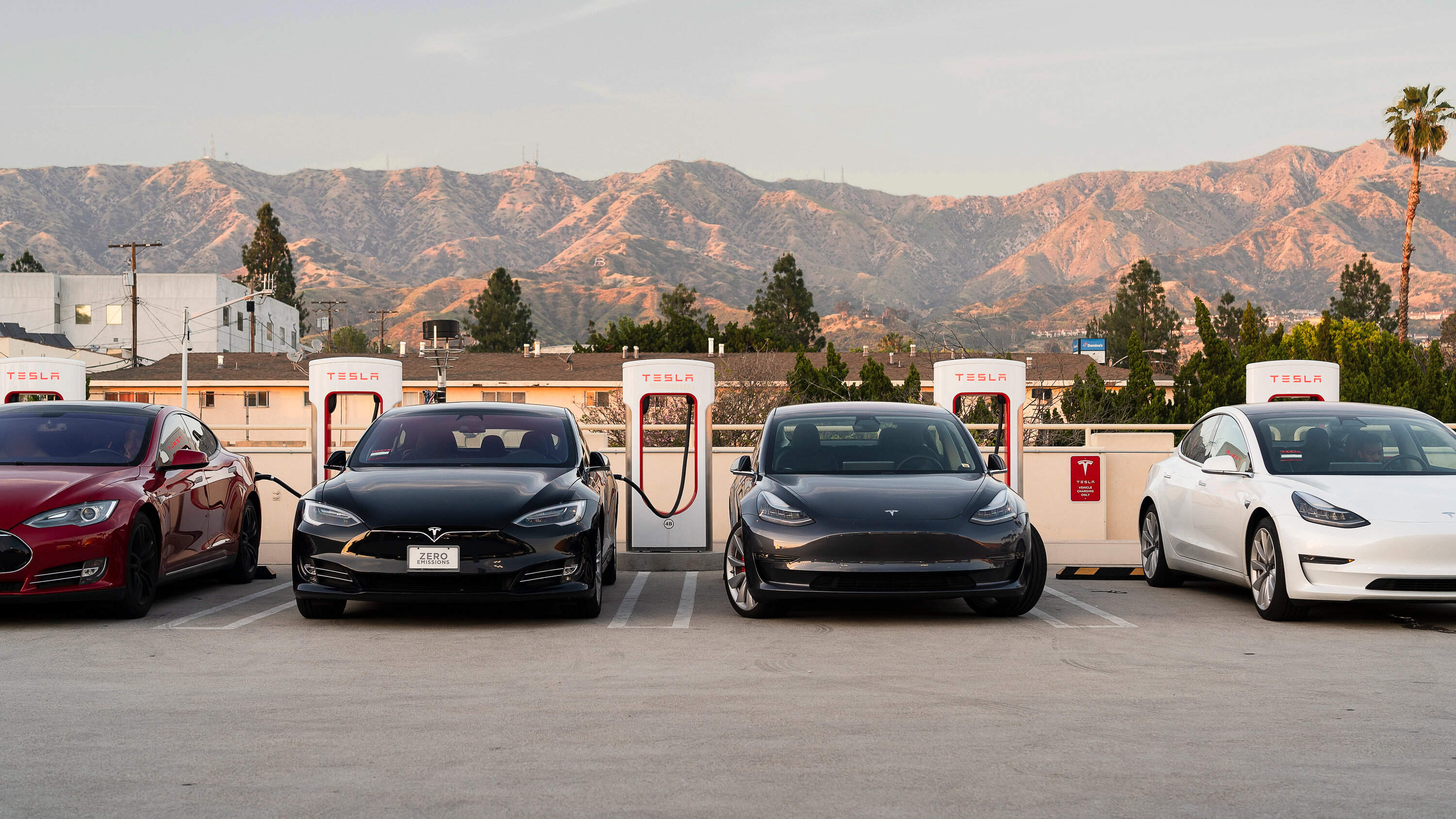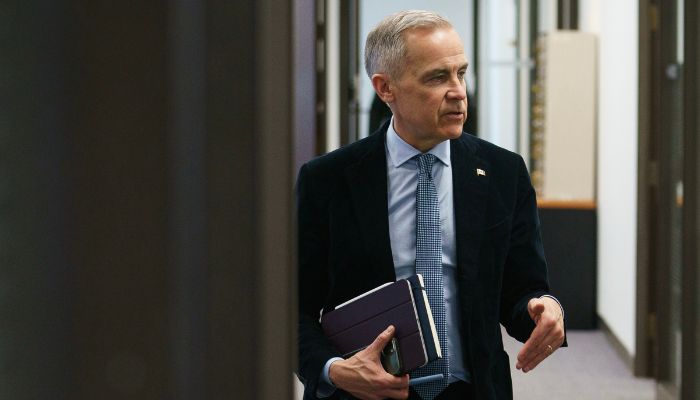EV Mandate Opposition Intensifies: Car Dealers Push Back

Table of Contents
Economic Concerns of EV Mandates for Dealerships
The economic implications of the EV mandate are a major source of concern for car dealerships. The transition requires substantial investments and presents significant risks to their existing business models.
Investment Costs and Infrastructure
Adapting to an EV-centric market requires significant upfront investment. Dealerships face substantial costs associated with:
-
High upfront investment in charging infrastructure: Installing and maintaining charging stations requires considerable capital expenditure, particularly for larger dealerships handling a greater volume of EVs. This includes not only the cost of the chargers themselves but also the electrical upgrades often necessary to support them.
-
Specialized tools and employee training: Servicing and repairing EVs require specialized tools and training for technicians. This adds to the financial burden, demanding significant investments in new equipment and comprehensive employee retraining programs.
-
Limited profitability on EV sales (short-term): Currently, profit margins on EVs are often lower than those on traditional gasoline-powered vehicles. This reduced profitability, coupled with the high upfront investment costs, creates a challenging financial environment for dealerships.
-
Uncertainty surrounding government incentives and consumer demand: The success of the EV transition relies heavily on government incentives and consumer adoption rates. Uncertainty in these areas adds to the financial risk for dealerships investing in EV infrastructure and inventory.
-
Dealerships require significant capital to adapt to the EV mandate, which poses a financial risk.
-
Maintaining inventory of both ICE and EVs increases storage and logistical costs.
Impact on Existing Inventory and Sales
The rapid shift to EVs presents immediate challenges to dealerships' existing inventory and sales strategies:
-
Difficulty in selling off existing inventory of gasoline-powered vehicles (ICE): As demand for EVs increases, the market for internal combustion engine (ICE) vehicles may decline more rapidly than anticipated, leaving dealerships with unsold inventory and potential losses.
-
Potential for stranded assets as EV adoption surpasses projections: Over-investment in ICE vehicle inventory could lead to significant financial losses if the transition to EVs occurs faster than predicted.
-
Reduced profit margins on EVs compared to ICE vehicles: The lower profit margins on EVs can make it difficult for dealerships to recoup their investments in infrastructure and training.
-
A rapid transition may leave dealers with unsold inventory, leading to financial losses.
-
The shift to EVs requires dealerships to retrain staff, which represents a significant financial investment.
Logistical Challenges Posed by the EV Mandate
Beyond the economic concerns, the EV mandate presents significant logistical challenges for dealerships:
Charging Infrastructure Development
The lack of robust charging infrastructure is a major obstacle to widespread EV adoption and creates significant logistical hurdles for dealerships:
-
Lack of widespread and reliable public charging infrastructure, particularly in rural areas: Limited charging access outside of urban centers creates "range anxiety" for consumers, hindering EV adoption.
-
Concerns about grid capacity and electricity supply to support increased EV adoption: The increased electricity demand from widespread EV adoption requires significant upgrades to existing power grids, a process that may lag behind the pace of EV deployment.
-
Challenges in managing charging station maintenance and availability: Ensuring the reliable operation and maintenance of public and private charging stations requires substantial investment and logistical planning.
-
Inadequate charging infrastructure hinders EV adoption and creates consumer anxiety.
-
Dealerships face the challenge of educating consumers about charging infrastructure and options.
Supply Chain Issues and Vehicle Availability
The EV industry is still grappling with significant supply chain challenges, impacting vehicle availability and creating further logistical difficulties for dealerships:
-
Shortages of EV components and batteries impacting production and availability: The current supply chain constraints can lead to delays in vehicle deliveries and unmet consumer demand, impacting dealership sales and customer satisfaction.
-
Difficulties in managing the transition to new EV technologies and repair processes: Dealerships need to adapt to new technologies and repair procedures for EVs, requiring investment in training and specialized equipment.
-
Uncertainty surrounding future EV technology standards and compatibility: The rapid evolution of EV technology creates uncertainty for dealerships regarding the long-term compatibility of their investments in infrastructure and equipment.
-
Supply chain disruptions can lead to delays in vehicle delivery and consumer dissatisfaction.
-
Dealers require specialized training to service and repair electric vehicles.
Arguments for a More Gradual Transition to EVs
Many stakeholders advocate for a more gradual transition to EVs, acknowledging the significant challenges faced by car dealerships and the need for a balanced approach:
Consumer Readiness and Demand
A successful EV transition hinges on consumer acceptance and readiness:
-
Need for increased consumer education and awareness about the benefits of EVs: Many consumers remain hesitant due to concerns about range anxiety, charging times, and initial purchase price. Effective education campaigns are vital.
-
Addressing consumer concerns about range anxiety, charging times, and initial cost: Government incentives, improved charging infrastructure, and technological advancements can help alleviate these concerns.
-
Focus on incentivizing EV adoption without mandating a rapid shift: A more gradual approach allows consumers to adapt at their own pace and avoids creating a sense of forced adoption.
-
A phased approach allows the market to adjust organically, ensuring consumer acceptance.
-
A gradual transition gives car dealers adequate time to adjust to the new market conditions.
The Role of Government Support and Incentives
Government intervention is crucial for a successful and equitable transition:
-
The need for clear and consistent government policies and incentives to support EV adoption: Stable and predictable policies create a more stable investment climate for dealerships and manufacturers.
-
Investment in research and development of EV technology to reduce costs: Technological advancements can make EVs more affordable and accessible to a wider range of consumers.
-
Focus on improving charging infrastructure across all regions and demographics: Addressing the lack of charging infrastructure, especially in rural areas, is essential for widespread adoption.
-
Government support is crucial for the successful transition to electric vehicles.
-
A comprehensive strategy involving all stakeholders is essential.
Conclusion
The intensifying opposition to EV mandates from car dealers highlights the significant economic and logistical challenges of a rapid transition to electric vehicles. Addressing these concerns requires a collaborative effort involving governments, manufacturers, and dealerships. A more gradual approach, coupled with robust government support and consumer education, will be key to ensuring a successful and sustainable shift to a cleaner transportation future. Continued dialogue and a balanced approach are crucial to overcoming the challenges and realizing the benefits of electric vehicle adoption. Let's work together to find solutions that address the concerns surrounding the EV mandate and create a smoother electric vehicle transition, fostering a sustainable future for the automotive industry.

Featured Posts
-
 Biels Goals Power Charlotte Fc Past San Jose Earthquakes 4 1
May 16, 2025
Biels Goals Power Charlotte Fc Past San Jose Earthquakes 4 1
May 16, 2025 -
 Analyzing The Carney Cabinet Implications For Business Leaders
May 16, 2025
Analyzing The Carney Cabinet Implications For Business Leaders
May 16, 2025 -
 Resultado Belgica Portugal 0 1 Resumen Y Goles Destacados
May 16, 2025
Resultado Belgica Portugal 0 1 Resumen Y Goles Destacados
May 16, 2025 -
 Paddy Pimblett 40 Pound Weight Increase Following Ufc 314 Fight
May 16, 2025
Paddy Pimblett 40 Pound Weight Increase Following Ufc 314 Fight
May 16, 2025 -
 From Forgotten Prospect To La Dodger Players Name S Journey
May 16, 2025
From Forgotten Prospect To La Dodger Players Name S Journey
May 16, 2025
Latest Posts
-
 Triumf Tampy Bey Nad Floridoy Klyuchevye Momenty Serii Pley Off N Kh L
May 16, 2025
Triumf Tampy Bey Nad Floridoy Klyuchevye Momenty Serii Pley Off N Kh L
May 16, 2025 -
 Tampa Bey Vybivaet Floridu Analiz Serii Pley Off N Kh L S Uchastiem Kucherova
May 16, 2025
Tampa Bey Vybivaet Floridu Analiz Serii Pley Off N Kh L S Uchastiem Kucherova
May 16, 2025 -
 Kh K Tampa Bey Pobezhdaet Floridu V Pley Off N Kh L Kucherov I Put K Pobede
May 16, 2025
Kh K Tampa Bey Pobezhdaet Floridu V Pley Off N Kh L Kucherov I Put K Pobede
May 16, 2025 -
 Nhl 25 A Deep Dive Into The Revived Arcade Mode
May 16, 2025
Nhl 25 A Deep Dive Into The Revived Arcade Mode
May 16, 2025 -
 The Arcade Returns Nhl 25s New Game Mode Explained
May 16, 2025
The Arcade Returns Nhl 25s New Game Mode Explained
May 16, 2025
